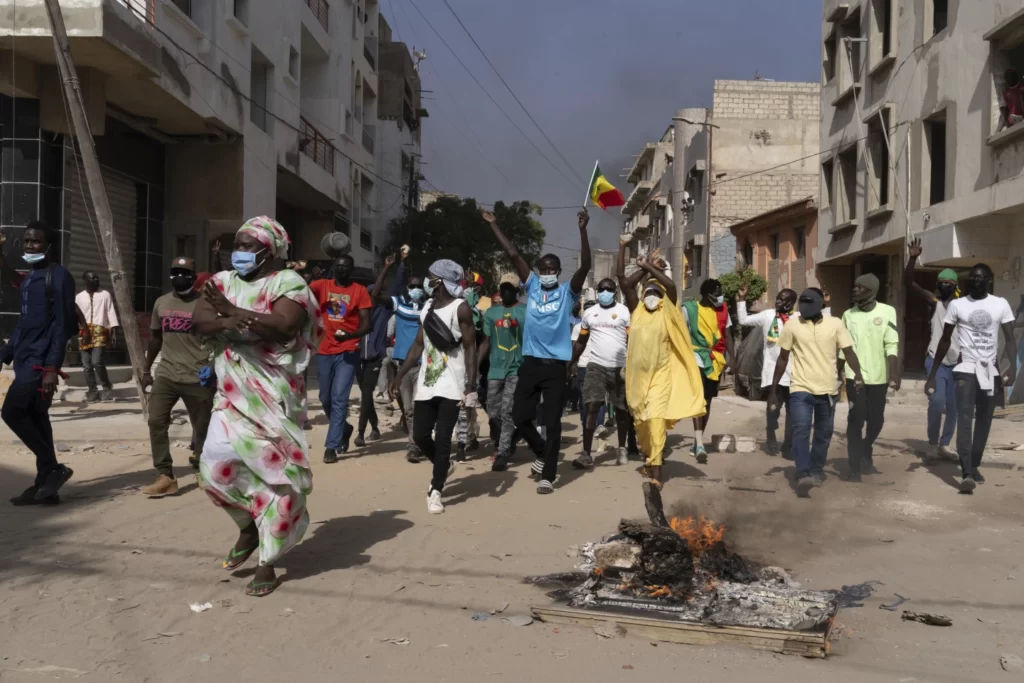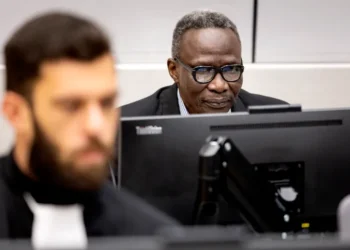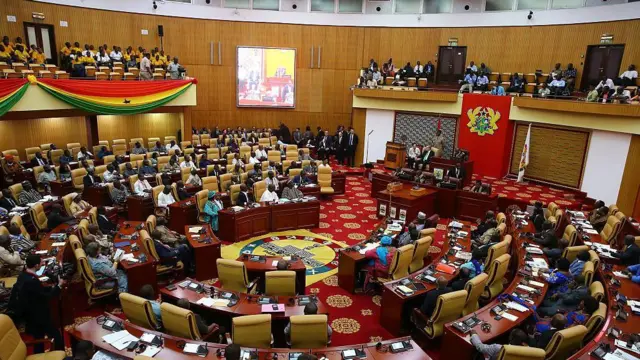President of Senegal, Macky Sall has defended his recent decision to postpone elections amidst violent protests that swept across the country on Friday, February 9, 2024.
In his first interview following the announcement and the February 9 protests, Sall refuted claims of unconstitutionality and the assertion that he had triggered a constitutional crisis.
He emphasized the necessity for additional time to address contentious issues, including the disqualification of certain candidates and problems between the legislative and judicial branches of government.
However, a significant portion of the populace is apprehensive that Sall, who is bound by term limits, may be attempting to prolong his tenure in office.
Despite Senegal’s reputation as one of West Africa’s most stable democracies, recent presidential elections have been marked by controversy, including protests as well as the disqualification of opposition leaders by electoral authorities.
Sall has refuted claims that he is attempting to cling to power, asserting, “I am absolutely seeking for nothing except to leave a country in peace and stability. I am completely ready to pass the baton. I have always been programmed for that.”
Sall’s decision to delay the election was triggered by growing tensions over who could run. The Constitutional Council, the top election authority, rejected a key candidate from a major party because he held dual citizenship with France when he filed his candidacy.
Karim Wade, the son of a former president and a candidate for the Senegalese Democratic Party, accused two Council members of corruption and called on parliament to postpone the election.
Sall argued that his intervention was crucial to avoid worsening electoral chaos. “I don’t want to leave behind a country that will immediately face major difficulties,” he stated.
“I am committed to working towards peace and creating conditions for a peaceful transition… Let’s all have inclusive discussions before heading into elections”
Macky Sall
Worsening Security And Constitutional Concerns

Despite his assurances, hundreds of protestors flooded the streets, engaging in disruptive activities such as burning tires, throwing stones, and blocking traffic. Security forces responded with tear gas to disperse the crowd.
According to reports, at least one student was killed on a school campus following protests in the country’s northern city of Saint Louis.
Moreover, the constitution grants the Constitutional Council the authority to postpone the vote under specific circumstances, such as “the death, permanent incapacity, or withdrawal” of candidates.
However, attempts by parliament to alter the legislation are deemed to contravene certain clauses of the current constitution, as noted by the Africa Center for Strategic Studies.
Recently, over a dozen opposition candidates appealed with the Supreme Court seeking to overturn the decree.
The Constitutional Council is anticipated to issue its verdict within about a week regarding whether it concurs with parliament’s determination.
Nonetheless, when questioned, Sall declined to comment on whether he would abide by the court’s decision in the event of a rejection of the delay.
He said “It is too early for me to consider this prospect … When the decision is made, I will be able to say what I will do”
Conflict analysts suggest that the delay in the election, particularly in a nation that was once viewed as a democratic stronghold, is likely to expedite the decline of democracy in West Africa, a region grappling with coups and insecurity.
Mucahid Durmaz, a Senior Analyst at the global risk consultancy Verisk Maplecroft, expressed concern, stating, “The current trend threatens to tarnish Senegal’s reputation and risks enabling anti-democratic practices by elected leaders in other West African countries.”
Experts from the U.S. Institutes of Peace attributed the crisis prompting the election delay to Sall, describing them as “disputes that his administration, and a presidentially appointed constitutional council, have largely created by barring prominent opposition figures or their parties from the electoral process.”
Several opposition members, including Sall’s prominent rival Ousmane Sonko, have been arrested. Sonko’s candidacy was also rejected due to a Supreme Court conviction for defamation against a minister.
Supporters of Sonko argue that his legal challenges were part of a government strategy to frustrate his candidacy in this year’s elections.
READ ALSO: Internet Services in Senegal Restored After Election Postponement Unrest





















